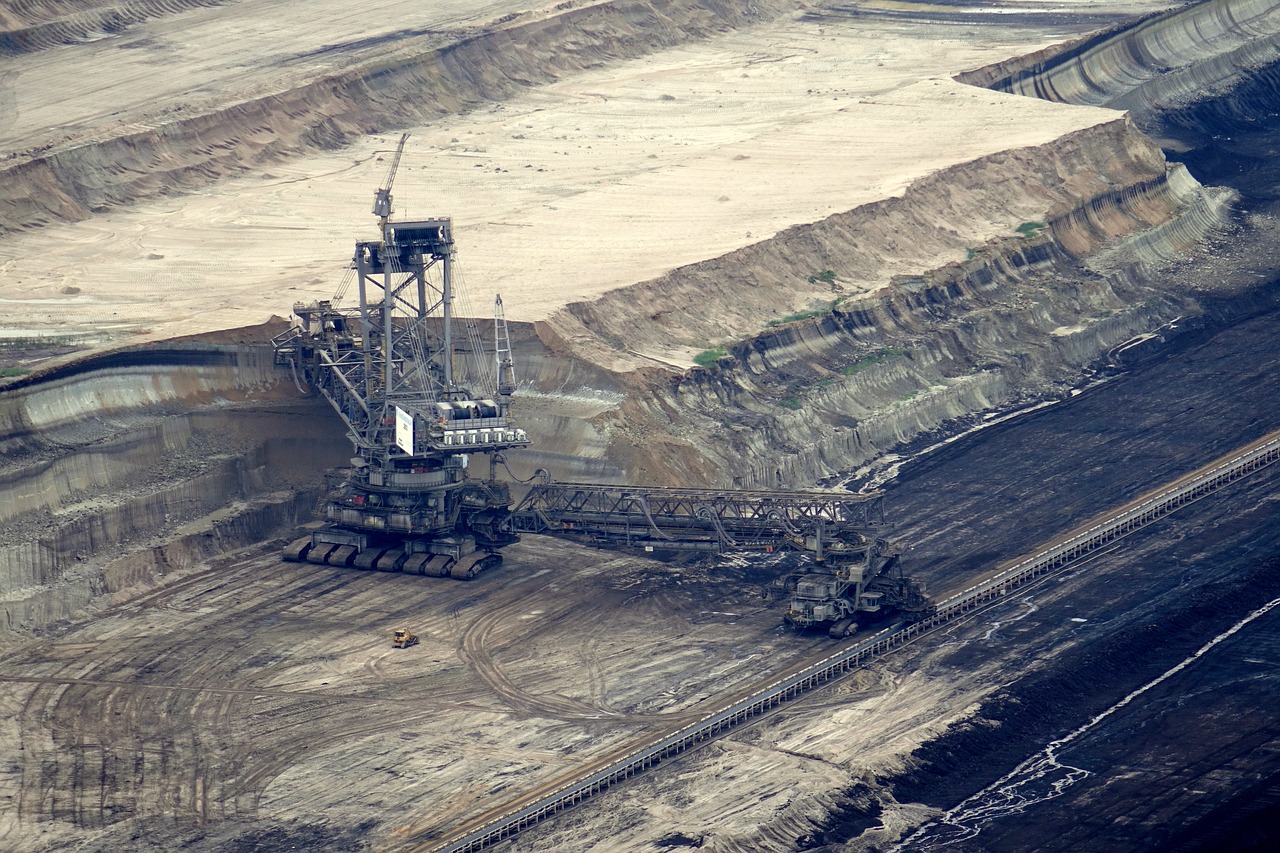Understanding the Legal Obligations of Crypto Miners
In the ever-evolving world of digital currencies, the role of crypto miners has become increasingly significant. Not only do they validate transactions and secure the network, but they also face a myriad of legal obligations that can be quite complex. As the cryptocurrency landscape continues to grow, so does the scrutiny from regulators, tax authorities, and environmental watchdogs. This article dives deep into the various legal responsibilities that cryptocurrency miners must adhere to, including regulatory compliance, tax implications, and environmental considerations.
At the heart of the legal obligations for crypto miners lies the regulatory framework that governs their operations. Depending on where you are in the world, these regulations can vary significantly. In some countries, mining is embraced as a legitimate business, while in others, it is met with strict regulations or outright bans. Miners must navigate a complex web of local, national, and international laws to ensure they operate within the legal boundaries.
For instance, in the United States, miners must comply with federal regulations set forth by agencies such as the Internal Revenue Service (IRS) and the Securities and Exchange Commission (SEC). These agencies have specific guidelines regarding the classification of cryptocurrencies, which directly impacts how miners report their income and pay taxes. On the other hand, countries like China have imposed stringent restrictions on mining activities, citing environmental concerns and energy consumption as primary reasons. It’s crucial for miners to stay informed about the specific laws in their jurisdiction to avoid hefty fines or legal repercussions.
Tax responsibilities are another crucial aspect of a crypto miner's legal obligations. When miners earn cryptocurrency through their mining activities, they are subject to various taxes, including income tax and capital gains tax. Understanding these tax implications can be a daunting task, especially with the rapid changes in regulations. Miners must accurately report their earnings, which can include not just the value of the cryptocurrency at the time of mining, but also any gains realized when they sell or exchange it.
Proper income reporting is essential for miners. According to the IRS, miners must report the fair market value of the cryptocurrency on the day it was mined as income. Failing to do so can lead to severe consequences, including audits and penalties. It’s like walking a tightrope; one misstep could lead to a fall into a world of tax troubles. To make matters easier, miners should maintain detailed records of their mining activities, including the date, value, and amount of cryptocurrency mined, to ensure they can substantiate their income claims when tax season rolls around.
Fortunately, miners can also deduct certain expenses from their taxable income, which can significantly reduce their tax burden. Commonly deductible expenses include:
- Electricity costs: Mining consumes a considerable amount of energy, and these costs can be deducted.
- Hardware purchases: The cost of mining equipment is also deductible, which can be a substantial expense.
- Maintenance fees: Any costs associated with maintaining mining rigs can be deducted as well.
By keeping track of these expenses, miners can optimize their tax obligations and keep more of their hard-earned profits.
The way cryptocurrencies are classified for tax purposes varies widely across different jurisdictions. In some countries, cryptocurrencies are treated as commodities, while in others, they are seen as currency. This classification can affect how miners are taxed on their earnings. For instance, in the U.S., cryptocurrencies are classified as property, which means that capital gains tax applies when they are sold. Understanding how your local laws classify cryptocurrencies is vital for compliance and effective financial planning.
For miners operating across borders, international tax treaties can have a significant impact on their tax obligations. These treaties are designed to prevent double taxation, ensuring that miners are not taxed on the same income in multiple countries. However, compliance with these treaties can be complex and requires careful navigation of both local and international laws. Miners must be diligent about understanding their rights and responsibilities under these treaties to avoid unexpected tax liabilities.
As the environmental impact of crypto mining comes under increasing scrutiny, miners are also facing legal obligations regarding energy consumption and emissions. The energy-intensive nature of mining has raised alarms about its contribution to carbon footprints and climate change. Consequently, many jurisdictions are implementing stricter regulations to mitigate these effects.
Miners are now being held accountable for their energy consumption. Various standards and regulations are being introduced to promote the use of renewable energy sources in mining operations. This shift not only helps miners comply with environmental laws but also aligns with global sustainability initiatives. By adopting greener practices, miners can reduce their environmental impact and potentially lower their operational costs.
Local governments are also responding to the rise of crypto mining with their own policies. Some areas are actively promoting mining as a way to boost local economies, while others are imposing restrictions due to environmental concerns. It’s essential for miners to stay updated on local policies, as these can directly affect their ability to operate legally.
Q: What are the main legal obligations for crypto miners?
A: Crypto miners must adhere to regulatory compliance, tax obligations, and environmental regulations.
Q: How do I report my mining income?
A: You should report the fair market value of the cryptocurrency on the day it was mined as income.
Q: Can I deduct expenses related to my mining operations?
A: Yes, expenses such as electricity costs, hardware purchases, and maintenance fees can be deducted from your taxable income.
Q: How do international tax treaties affect crypto miners?
A: Tax treaties can prevent double taxation for miners operating in multiple countries, but compliance with these treaties is crucial.

Regulatory Framework for Crypto Mining
The world of cryptocurrency mining is not just about powerful computers and complex algorithms; it’s also a maze of legal obligations that miners must navigate. As the digital currency landscape evolves, so too do the regulations that govern it. Each country has its unique set of laws, and understanding these regulations is crucial for any miner looking to operate legally. In this section, we'll dive into the various regulatory frameworks that influence crypto mining, ensuring that you’re not only mining coins but also staying compliant with the law.
At the local level, many jurisdictions have begun to implement specific rules regarding the operation of mining facilities. These regulations can cover a broad spectrum of issues, from zoning laws that dictate where miners can set up shop to licensing requirements that ensure compliance with local business regulations. For example, some areas may require miners to obtain a special permit to operate due to concerns about energy consumption or noise pollution. This illustrates the importance of conducting thorough research before establishing a mining operation.
On a national scale, countries like the United States have introduced legislation aimed at regulating cryptocurrency activities. The Financial Crimes Enforcement Network (FinCEN) requires miners to register as money services businesses (MSBs) if they engage in certain activities. This means that miners must adhere to strict anti-money laundering (AML) and know your customer (KYC) regulations, which can include maintaining detailed records of transactions and customer identities. Failure to comply can lead to hefty fines or even criminal charges, making it essential for miners to stay informed about their obligations.
Internationally, the regulatory landscape becomes even more complex. Different countries have varying stances on cryptocurrency mining, ranging from outright bans to full acceptance. For instance, nations like China have cracked down on mining operations due to environmental concerns, while countries such as Canada and Switzerland have embraced the industry, creating favorable conditions for miners. This disparity means that miners operating across borders must be aware of the laws in each jurisdiction where they conduct business.
Moreover, international organizations are beginning to take notice of the crypto mining phenomenon. The Financial Action Task Force (FATF) has issued guidelines that member countries are encouraged to follow regarding virtual assets. These guidelines aim to mitigate risks associated with money laundering and terrorist financing, urging nations to implement regulatory frameworks that include crypto miners. As a result, miners must remain vigilant and adaptable, as regulations can change rapidly based on global trends and pressures.
To summarize, the regulatory framework for crypto mining is a multifaceted issue that requires miners to be proactive in understanding their legal responsibilities. Whether it’s local zoning laws, national AML requirements, or international guidelines, staying informed is key to operating a successful and compliant mining operation. As the landscape continues to evolve, those involved in crypto mining must be prepared to adapt to new regulations and ensure they are operating within the bounds of the law.

Tax Implications for Miners
When it comes to cryptocurrency mining, understanding the tax implications is crucial for anyone looking to dive into this lucrative yet complex world. As a miner, you are not just generating digital coins; you're also stepping into a realm filled with various tax responsibilities that can catch you off guard if you're not careful. So, what exactly do you need to know? Let's break it down.
First and foremost, it's essential to recognize that the income generated from mining is generally considered taxable income. This means that, just like any other form of earnings, you'll need to report it to the tax authorities. But how do you go about reporting this income? Well, the IRS in the United States, for example, treats mined cryptocurrency as ordinary income. This means that you must report the fair market value of the coins at the time you mined them. Failure to report this income can lead to serious consequences, including audits and hefty penalties.
Moreover, the tax landscape for crypto miners can vary significantly based on your location. Different countries—and even different states—have their own regulations regarding cryptocurrency taxation. For instance, in some jurisdictions, you may be liable for capital gains tax if you sell your mined coins. This adds another layer of complexity to your tax obligations. Therefore, it’s crucial to stay informed about the specific regulations that apply to your situation.
Now, let's dive a bit deeper into the income reporting requirements. As a miner, you are required to report your earnings to the tax authorities, and this can be a bit tricky. The IRS expects you to report your mining income on your tax return, typically on Schedule 1 of Form 1040. If you fail to accurately report your income, you could face an audit, which can be a stressful and time-consuming experience. Remember, the key here is transparency. Keeping detailed records of your mining activities, including the dates, amounts, and fair market value of the coins at the time of mining, can save you a lot of headaches down the line.
But wait, it's not all doom and gloom! As a miner, you also have the opportunity to deduct certain expenses from your taxable income. This can significantly reduce your tax burden. Some common deductible expenses include:
- Electricity Costs: Mining consumes a lot of energy, and you can deduct the cost of electricity used for your mining operations.
- Hardware Purchases: The cost of mining rigs, graphics cards, and other necessary equipment can also be deducted.
- Maintenance Fees: Any costs associated with maintaining your mining equipment can further reduce your taxable income.
It’s important to keep receipts and detailed records of these expenses to ensure you can justify your deductions if questioned by tax authorities.
Another critical aspect to consider is how different jurisdictions classify cryptocurrencies for tax purposes. In some places, cryptocurrencies are treated as property, while in others, they may be considered currency. This classification can have significant implications for your financial obligations. For example, if your jurisdiction treats cryptocurrencies as property, you may be subject to capital gains tax when you sell or exchange your mined coins. Understanding these classifications can help you navigate the tax landscape more effectively.
If you’re mining across borders, you’ll need to be aware of international tax treaties that may affect your obligations. Many countries have agreements in place to prevent double taxation, which can be a lifesaver for international miners. However, compliance is crucial. Failing to adhere to these treaties can lead to penalties and increased scrutiny from tax authorities. It’s always a good idea to consult with a tax professional who understands the nuances of international tax law as it pertains to cryptocurrency mining.
In summary, while the world of crypto mining can be exhilarating and profitable, it comes with a hefty set of tax implications that you cannot afford to ignore. From income reporting to deductible expenses and international treaties, staying informed and compliant is key to ensuring your mining operation thrives without unnecessary legal troubles.
Q: Do I need to report my mining income if I don't sell the coins?
A: Yes, you must report the fair market value of the coins at the time you mined them, even if you haven't sold them yet.
Q: Can I deduct my electricity costs for mining?
A: Absolutely! Electricity costs used for mining operations are generally deductible.
Q: What happens if I fail to report my mining income?
A: Failing to report your income can lead to audits and penalties from tax authorities, so it's essential to be transparent.

Income Reporting Requirements
When it comes to cryptocurrency mining, one of the most crucial aspects that miners need to be aware of is how to report their income accurately. The digital currency landscape is constantly evolving, and with it, the regulations surrounding it. So, what does this mean for miners? It means that they must be diligent in tracking their earnings and understanding their tax obligations. Failing to report income can lead to severe repercussions, including audits, penalties, and in some cases, criminal charges. Imagine putting in countless hours of work only to face the consequences of a simple oversight!
First off, it's essential to recognize that the income generated from mining cryptocurrencies is generally considered taxable income. This means that miners must report the fair market value of the cryptocurrency at the time it is mined. For example, if you mine Bitcoin and its market value is $50,000 when you successfully mine a block, that amount is what you need to report as income. The IRS and other tax authorities expect miners to keep meticulous records of their mining activities, including the date of mining, the amount mined, and the corresponding market value. It’s like keeping a diary of your earnings, and trust me, it pays off in the long run!
To help miners navigate these reporting requirements, here’s a quick breakdown of the key points to remember:
- Track Your Earnings: Keep a detailed log of all mined cryptocurrencies, including timestamps and market values.
- Understand Taxable Events: Know when a taxable event occurs, such as converting mined coins into fiat currency or trading them for other cryptocurrencies.
- Report Accurately: Ensure that the reported income reflects the fair market value at the time of mining.
But what happens if you don’t report your mining income? The consequences can be quite daunting. Tax authorities have been ramping up their scrutiny of crypto transactions, and miners can find themselves under the microscope if they fail to comply. This could lead to audits, back taxes, and hefty fines. It’s like being caught in a storm without an umbrella—unpleasant and potentially damaging to your financial health!
Moreover, miners should be aware of the potential for penalties. If the authorities determine that the failure to report was willful, the penalties can be significantly steeper. It’s crucial to approach your tax obligations with transparency and honesty. Keeping good records and seeking professional advice when necessary can help mitigate these risks.
In summary, income reporting for crypto miners is not just a formality; it’s a legal obligation that carries serious consequences if neglected. By staying organized and informed, miners can ensure that they meet their reporting requirements and avoid the pitfalls that come with non-compliance. Just think of it as part of the mining process—digging deep not just for coins but for compliance and peace of mind!
- Do I need to report cryptocurrency mined if I haven't sold it? Yes, you must report the fair market value of the cryptocurrency at the time it is mined, even if you haven't sold it.
- What records should I keep for tax purposes? Keep a detailed log of your mining activities, including dates, amounts mined, and the market value at the time of mining.
- What are the penalties for failing to report my mining income? Penalties can range from fines to audits and back taxes, depending on the severity of the non-compliance.
- Can I deduct expenses related to my mining operations? Yes, you can deduct certain expenses, such as electricity costs and hardware purchases, from your taxable income.

Deductible Expenses
When it comes to cryptocurrency mining, one of the most appealing aspects is the ability to deduct certain expenses from your taxable income. This not only helps in reducing your overall tax burden but also makes the mining operation more financially viable. However, understanding which expenses are deductible is crucial. So, let’s dive into the nitty-gritty of deductible expenses that every crypto miner should be aware of.
Firstly, the most significant expense that miners face is electricity costs. Mining rigs consume a substantial amount of power, and these costs can quickly add up. In many jurisdictions, miners can deduct the cost of electricity directly related to their mining activities. It’s essential to keep detailed records of your electricity bills, as this documentation will be critical if you ever face an audit. Have you ever thought about how much energy your gaming console uses? Well, crypto mining can be several times more power-hungry than that!
Another important deductible expense is the purchase of mining hardware. This includes the costs associated with acquiring specialized equipment like ASIC miners or GPUs, which are essential for efficient mining. The IRS allows miners to depreciate these assets over time, which means you can spread the deduction over several years. This is akin to how businesses can write off the cost of machinery or vehicles over their useful life. Make sure to keep all receipts and invoices, as they will serve as proof of your investment.
Maintenance costs also come into play. Just like any other machinery, mining rigs require regular upkeep. This includes expenses for repairs, upgrades, and even cooling systems to prevent overheating. If you’ve ever had to replace a fan or upgrade your setup to keep pace with the latest technology, you know how these costs can add up. Thankfully, these expenses can also be deducted, providing some relief to miners who want to keep their operations running smoothly.
In addition to these primary expenses, miners can also consider deducting costs related to internet services. A stable and fast internet connection is vital for mining operations, and the costs associated with it can be significant. Just imagine trying to mine Bitcoin with a slow connection—your chances of success would plummet! Documenting these expenses is key, as they can contribute to lowering your taxable income.
Lastly, it’s worth mentioning that any costs associated with software used for mining, such as mining pool fees or wallet services, can also be deductible. These fees might seem minor in the grand scheme of things, but they can accumulate over time, making them worthy of consideration when calculating your overall expenses.
To summarize, here’s a quick table of deductible expenses that crypto miners should keep in mind:
| Deductible Expense | Description |
|---|---|
| Electricity Costs | Power consumption directly related to mining activities. |
| Mining Hardware | Costs for purchasing and depreciating mining equipment. |
| Maintenance Costs | Expenses for repairs, upgrades, and cooling systems. |
| Internet Services | Costs for stable and fast internet connections. |
| Software Fees | Fees related to mining pools and wallet services. |
By keeping track of these deductible expenses, miners can significantly reduce their tax liability. It’s always a good idea to consult with a tax professional who understands the nuances of cryptocurrency mining to ensure you’re maximizing your deductions legally and effectively. After all, in the world of crypto, every coin counts!
Q1: Can I deduct my home office expenses as a crypto miner?
A1: Yes, if you mine from home, you may be able to deduct a portion of your home office expenses, including utilities and rent, proportional to the space used for mining.
Q2: What records do I need to keep for my deductions?
A2: It’s essential to keep receipts, invoices, and any documentation related to your expenses, including electricity bills and hardware purchases, to substantiate your deductions.
Q3: Are there any limits to the deductions I can claim?
A3: While there are no strict limits, you must ensure that your deductions are reasonable and directly related to your mining activities to avoid issues with tax authorities.

Taxation of Cryptocurrencies
When it comes to the , it's essential to understand that different jurisdictions have varying approaches to classifying and taxing digital assets. This can often feel like navigating a maze, with each turn leading you deeper into a complex web of laws and regulations. In many countries, cryptocurrencies are treated as property rather than currency, meaning that any profit made from their sale or exchange is subject to capital gains tax. This classification can have significant implications for miners, as it affects how they report their earnings and the taxes they owe.
For instance, in the United States, the Internal Revenue Service (IRS) has made it clear that cryptocurrencies are considered property. This means that when miners receive cryptocurrency as a reward for their mining efforts, they need to report that income based on the fair market value at the time of receipt. So, if you mined Bitcoin and its value skyrocketed overnight, you’d be taxed on that higher value, even if you haven’t sold it yet. It's a bit like finding a treasure chest that appreciates in value while you hold onto it—taxes are due regardless of whether you’ve cashed in your treasure.
Moreover, the implications of cryptocurrency taxation can vary significantly across different countries. For example, in some regions, cryptocurrencies may be exempt from capital gains tax if held for a certain period. In contrast, other jurisdictions might impose strict reporting requirements that can lead to hefty fines if not adhered to. Here’s a quick overview of how various countries treat cryptocurrency taxation:
| Country | Tax Treatment | Capital Gains Tax Rate |
|---|---|---|
| United States | Property | 0%-20% based on income |
| Germany | Private Money | 0% if held for over 1 year |
| Australia | Capital Gains Tax | 0%-45% based on income |
| Singapore | No Capital Gains Tax | N/A |
As you can see, the landscape of cryptocurrency taxation is incredibly diverse. Miners need to stay informed about the specific regulations in their home country and any countries they may operate in. This knowledge is crucial not just for compliance, but also for optimizing their tax obligations. Failing to report income correctly can result in audits, penalties, and a host of other legal troubles that can make the mining experience far less enjoyable.
In addition to capital gains tax, miners should also consider the implications of income tax. When a miner receives cryptocurrency rewards, those rewards are typically considered taxable income, which can complicate matters further. It’s a good idea for miners to keep meticulous records of their mining activities, including the date of receipt, the value at the time, and any transaction fees involved. This approach not only simplifies reporting but also provides a safety net in case of future inquiries from tax authorities.
In conclusion, the taxation of cryptocurrencies is a multifaceted issue that every miner must navigate carefully. With the ever-changing regulations and the potential for significant financial repercussions, staying informed and compliant is not just advisable—it’s essential. As the crypto landscape evolves, so too will the laws governing it, making it crucial for miners to regularly review their tax obligations and seek professional advice when needed.
- What are the tax implications of mining cryptocurrencies? Tax implications can include income tax on the value of mined coins and capital gains tax when those coins are sold or exchanged.
- How do I report my mined cryptocurrency on my taxes? You should report the fair market value of the mined cryptocurrency as income at the time of receipt, and any gains or losses when you sell or exchange it.
- Are there any deductions I can claim as a crypto miner? Yes, miners can deduct expenses such as electricity costs, hardware purchases, and maintenance fees from their taxable income.
- What happens if I fail to report my crypto mining income? Failing to report can lead to audits, penalties, and interest on unpaid taxes, so it’s crucial to keep accurate records.

Tax Treaties and Compliance
When it comes to cryptocurrency mining, navigating the landscape of international tax treaties can feel like trying to find your way through a maze. With different countries having varying laws and agreements, understanding how these treaties affect miners is crucial to ensuring compliance and avoiding unnecessary penalties. Essentially, tax treaties are agreements between two or more countries that aim to prevent double taxation and fiscal evasion. For crypto miners, this means that if you operate across borders, you might not have to pay taxes on the same income in multiple jurisdictions.
Imagine you're mining in the United States but also have a server farm in Canada. Without the right knowledge of tax treaties, you could find yourself in hot water, facing hefty tax bills from both countries. To avoid this, miners should familiarize themselves with the specific treaties that exist between their home country and any other countries where they operate. This can help clarify which income is taxable and at what rate, ultimately saving you from the headache of double taxation.
Compliance is key here. Failing to adhere to the stipulations of these treaties can lead to fierce penalties, audits, and even legal trouble. Miners should keep meticulous records of their earnings and expenses, as well as any taxes paid to foreign governments. This documentation will be invaluable if tax authorities come knocking. Moreover, many countries require that you file tax returns even if you believe you owe no taxes. It's like having a ticket to the show; even if you don’t plan to stay for the entire performance, you still need to show up!
Additionally, it's worth noting that tax treaties can sometimes offer reduced withholding tax rates on certain types of income, which can be a boon for crypto miners. For instance, if you receive payments in cryptocurrency from a foreign entity, the withholding tax rate might be lower than what you would typically face. This is where understanding the details of each treaty can pay off significantly.
In conclusion, the world of tax treaties is complex, but by staying informed and compliant, crypto miners can navigate these waters more smoothly. It’s always a good idea to consult with a tax professional who understands both cryptocurrency and international tax law to ensure you’re making the most of these treaties while staying on the right side of the law.
- What are tax treaties? Tax treaties are agreements between countries that aim to prevent double taxation and fiscal evasion.
- How do tax treaties affect crypto miners? They can help miners avoid paying taxes on the same income in multiple jurisdictions and may offer reduced tax rates.
- What happens if I don’t comply with tax treaties? Non-compliance can lead to penalties, audits, and legal issues.
- Should I consult a tax professional? Yes, it’s highly recommended to consult a tax expert familiar with cryptocurrency and international tax law.

Environmental Regulations
In recent years, the conversation surrounding cryptocurrency mining has evolved significantly, especially when it comes to its environmental impact. As miners harness computing power to validate transactions and secure the blockchain, they inevitably consume vast amounts of energy. This has led to increasing scrutiny from governments and environmental groups alike, who are concerned about the carbon footprint associated with mining operations. In response, various have emerged, aimed at mitigating these impacts while still allowing the industry to thrive.
Many countries are now implementing regulations that target the energy consumption of crypto mining. For instance, some jurisdictions are encouraging miners to switch to renewable energy sources by offering incentives or tax breaks. This is not just about compliance; it’s about fostering a more sustainable approach to mining. Miners who rely on fossil fuels face not only regulatory hurdles but also public backlash, which can affect their business reputation and profitability.
Moreover, local governments are taking a closer look at the mining activities within their jurisdictions. Some regions have enacted policies that either promote or restrict mining based on environmental considerations. These policies can vary significantly, leading to a patchwork of regulations across different areas. For example, a state might impose strict emissions standards for mining operations, while a neighboring state may offer subsidies for miners who utilize green energy. This inconsistency can create challenges for miners who operate across state lines or internationally.
To better understand the implications of these regulations, let’s take a look at some key areas of concern:
| Regulatory Aspect | Description |
|---|---|
| Energy Consumption Standards | Regulations that dictate the amount of energy miners can use, often with a focus on renewable sources. |
| Emissions Regulations | Policies that limit the carbon emissions produced by mining operations, encouraging cleaner practices. |
| Incentives for Green Mining | Financial incentives provided to miners who utilize renewable energy or adopt sustainable practices. |
As environmental concerns continue to rise, the crypto industry must adapt to these regulations. Miners who proactively implement sustainable practices not only comply with the law but also position themselves as responsible players in the market. This can lead to a competitive advantage, as consumers and investors increasingly favor companies that prioritize sustainability.
In conclusion, the landscape of environmental regulations for crypto miners is rapidly changing. With the potential for both opportunities and challenges, miners must stay informed and adaptable. As we move towards a future where sustainability is key, those who embrace environmentally friendly practices will likely find themselves ahead of the curve.
Q1: What are the main environmental concerns associated with cryptocurrency mining?
A1: The primary concerns include high energy consumption, reliance on non-renewable energy sources, and significant carbon emissions that contribute to climate change.
Q2: How can miners reduce their environmental impact?
A2: Miners can reduce their impact by switching to renewable energy sources, improving energy efficiency, and participating in carbon offset programs.
Q3: Are there any financial incentives for using renewable energy in mining?
A3: Yes, many governments offer tax breaks, grants, or subsidies to miners who use renewable energy, helping to offset the initial investment costs.
Q4: How do local regulations affect crypto mining operations?
A4: Local regulations can either promote or restrict mining activities based on environmental considerations, leading to varying operational challenges across different jurisdictions.

Energy Consumption Standards
In the world of cryptocurrency mining, energy consumption standards are becoming increasingly crucial. As miners operate large-scale operations, often running thousands of machines 24/7, the amount of energy consumed can be staggering. This has raised eyebrows among regulators and environmentalists alike. The question that often arises is: How can miners balance profitability with sustainability? In many jurisdictions, regulations are being introduced to ensure that mining operations adhere to energy consumption standards that aim to reduce their carbon footprint.
For instance, some countries have begun to implement renewable energy initiatives that encourage miners to utilize sustainable sources of energy, such as solar or wind power. These initiatives not only help in reducing greenhouse gas emissions but also align with global efforts to combat climate change. Furthermore, miners who adopt these practices may even benefit from tax incentives or reduced energy costs, making it a win-win situation.
To illustrate the importance of energy consumption standards, consider the following table that summarizes various energy regulations across key mining jurisdictions:
| Country | Energy Regulation | Renewable Energy Incentives |
|---|---|---|
| United States | State-specific regulations on energy consumption | Tax credits for solar energy use |
| China | Restrictions on energy-intensive mining operations | Investment in hydroelectric power projects |
| Germany | Compliance with EU energy standards | Subsidies for renewable energy adoption |
As seen in the table, different countries have varying approaches to regulating energy consumption in crypto mining. Miners must stay informed about the local laws and standards that apply to them. Failing to comply with these regulations can lead to hefty fines or even shutdowns of mining operations. It's essential for miners to not only focus on their profitability but also to consider their environmental impact. By adopting energy-efficient practices, they can contribute to a more sustainable future while also potentially lowering their operational costs.
Moreover, many miners are now exploring innovative technologies that improve energy efficiency. For example, liquid cooling systems are gaining popularity as they can significantly reduce the electricity needed for cooling mining rigs. This not only lowers energy consumption but also extends the lifespan of the hardware, providing another layer of cost savings.
In conclusion, energy consumption standards are not just a regulatory requirement; they are a vital part of the future of cryptocurrency mining. As the industry evolves, miners who prioritize sustainability and compliance will likely find themselves at a competitive advantage. The question remains: Will the mining community rise to the challenge and embrace these changes for a greener future?
- What are energy consumption standards in crypto mining? Energy consumption standards are regulations that dictate how much energy mining operations can use, often aimed at reducing environmental impact.
- How can miners reduce their energy consumption? Miners can reduce energy consumption by using renewable energy sources, adopting energy-efficient technologies, and optimizing their mining rigs.
- Are there any incentives for using renewable energy in mining? Yes, many jurisdictions offer tax credits or subsidies for miners who utilize renewable energy sources.
- What happens if a mining operation does not comply with energy regulations? Non-compliance can result in fines, operational shutdowns, or legal action from regulatory bodies.

Local Government Policies
As the world of cryptocurrency continues to expand and evolve, local governments are increasingly stepping into the fray, crafting policies that can either promote or restrict crypto mining activities. These policies are often shaped by a variety of factors, including the environmental impact of mining operations, energy consumption, and the overall economic benefits that mining can bring to a community.
In some areas, local governments have embraced crypto mining as a means of boosting economic development. They recognize that mining operations can create jobs, increase local spending, and attract tech-savvy individuals to the region. To encourage these benefits, some municipalities have implemented incentives such as tax breaks, reduced electricity rates, or streamlined permitting processes. These incentives can significantly lower the operational costs for miners, making it more feasible for them to set up shop.
However, not all local governments view crypto mining through a favorable lens. Concerns about the environmental impact of mining—particularly in terms of energy consumption and carbon emissions—have led some jurisdictions to impose strict regulations or even bans on mining activities. For instance, cities that are struggling with energy shortages may prioritize local energy needs over the demands of crypto miners. In these cases, local policies may include:
- Energy Usage Limits: Restrictions on the amount of energy that mining operations can consume.
- Operational Hours: Limitations on when mining activities can occur to reduce strain on the local power grid.
- Environmental Impact Assessments: Requirements for miners to conduct assessments to evaluate their impact on the local ecosystem.
Additionally, local governments may also be influenced by public sentiment. As communities become more aware of the environmental footprint of crypto mining, local officials may feel pressure to take action. This can lead to a patchwork of regulations that vary significantly from one locality to another. Miners looking to operate in different regions must stay informed about these local policies, as non-compliance can result in hefty fines or even shutdowns.
In summary, the landscape of local government policies regarding crypto mining is complex and dynamic. Miners must navigate a variety of regulations that can differ greatly depending on their location. Understanding these local policies is crucial for anyone looking to engage in crypto mining, as they can have a profound impact on operational viability and profitability.
Q: What should I do if my local government imposes restrictions on crypto mining?
A: It's essential to stay informed about local regulations and engage with local officials. You may also consider advocating for more favorable policies or exploring alternative locations for mining operations.
Q: Are there any incentives for crypto miners at the local level?
A: Yes, many local governments offer incentives such as tax breaks or reduced utility rates to attract crypto mining businesses. It's worth researching the specific incentives available in your area.
Q: How can I ensure compliance with local mining regulations?
A: Regularly review local laws and regulations, and consult with legal experts if necessary. Keeping abreast of any changes in policy is crucial to avoid penalties.
Frequently Asked Questions
- What are the legal obligations for cryptocurrency miners?
Cryptocurrency miners must comply with various legal obligations, including regulatory compliance at local, national, and international levels. This involves understanding the laws governing cryptocurrency operations, ensuring that they are licensed to operate, and adhering to any specific regulations applicable to crypto mining in their jurisdiction.
- How do taxes affect cryptocurrency miners?
Miners are subject to several tax implications, including income tax on their earnings and capital gains tax when they sell mined cryptocurrencies. They must accurately report their income and may face audits and penalties if they fail to comply with tax reporting requirements.
- What expenses can crypto miners deduct from their taxable income?
Miners can deduct various expenses from their taxable income, such as electricity costs, hardware purchases, and maintenance fees. Keeping detailed records of these expenses is crucial for accurate tax reporting and maximizing deductions.
- How do international tax treaties impact crypto miners?
International tax treaties can significantly affect crypto miners who operate across borders by helping to avoid double taxation. Understanding these treaties is essential for miners to ensure compliance and optimize their tax obligations.
- What are the environmental regulations for crypto mining?
Miners are increasingly subject to environmental regulations that govern energy consumption and emissions. Many jurisdictions are implementing standards aimed at promoting sustainability, such as encouraging the use of renewable energy sources in mining operations.
- How can local government policies affect crypto mining?
Local governments may introduce policies that either restrict or promote crypto mining based on environmental considerations. These policies can impact where and how miners operate, making it essential for them to stay informed about local regulations.



















